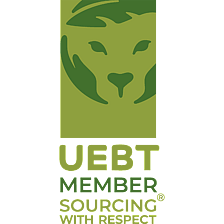Questions and Answers: What is Weleda’s stance on packaging?

Packaging is getting a lot of attention these days. Since we are a sustainable company, it’s a topic that is especially close to our hearts. We are always on the lookout for better solutions, while needing to take various criteria into account: product stability, usability, and requirements in terms of recyclability and ensuring that there are no harmful substances.
For our natural and organic cosmetics, we rely on packaging that protects the product well. This enables us to do away with artificial preservatives and antioxidants.
What kind of packaging does Weleda use?
We use aluminium, glass and various plastic packaging, and in many cases, outer packaging made from paper that is nearly 100-percent recycled. If we look at the packaging solutions currently available on the market, there really isn’t anything that is ideal in every respect. We therefore have to weigh up which materials are suitable for which product, and what the pros and cons are of each.

Why does Weleda use plastic packaging?
Since we manufacture NATRUE-certified natural cosmetics and avoid using artificial preservatives and antioxidants, we need to protect our sensitive formulas properly.
Glass containers aren’t suitable for many of our products. Easy dispensing of the product is often not possible with such packaging, and it can easily lead to microbial impurities. For that reason, we can only use these containers for a small number of our products, such as Weleda body oils.
We would like to move away from aluminium tubes, since the production of new aluminium causes great damage to the environment. Recycled aluminium cannot be used for tubes.
That is how things currently stand. We are, however, working on solutions to replace petroleum-based plastics with better materials, such as bioplastics (which must be GMO-free).* As soon as we find something better that works in practice, we will use it.
In the meantime, we will focus on increasing the content of recycled materials in our packaging as much as we can.
* GMO: genetically modified organisms
Isn’t glass a better solution?
Glass is airtight, highly recyclable and can easily be disposed of as a natural material. It is a suitable packaging material for some Weleda products, such as for the Weleda body oils. For products with a firmer consistency, however, glass packaging is of limited suitability since it can make dispensing difficult. Glass is also very breakable. We therefore do not use it for baby products. Glass also requires a lot of energy to manufacture, and - because the glass itself is heavy - to transport.
Why is Weleda reducing aluminium packaging?
For a long time, aluminium was the best material for protecting products with particularly sensitive natural ingredients. Aluminium tubes are traditionally used for pharmaceuticals, cosmetic products and foods. However, recycled aluminium cannot be used for tubes, as it is too brittle for that purpose. The production of new aluminium causes great environmental damage, for which there is still no proper solution.
We would therefore like to significantly reduce the use of aluminium. We will use it in packaging only for products that need a particularly high level of protection. Even in those cases, we will be changing over to tubes with aluminium barrier laminate (ABL), which has a much lower aluminium content.
Why is additional packaging still being used, such as outer cartons for body oils and plastic film for shower gels? What needs to be done for these to be discontinued?
When glass containers are used, the cardboard outer packaging serves to protect the glass and to protect the product from tampering. The cardboard currently already consists of nearly 100-percent recycled material.
The plastic film used for shower gel is also to protect against tampering.
But there are already bioplastics available. Why doesn’t Weleda use those?
Bioplastics are a development that we are really excited about. At the moment, we are working with our suppliers to find packaging solutions based on those materials.
We have stringent requirements for bioplastics: they must be proven to have no negative impact on food production, and may not contain any genetically modified organisms (GMOs). They must also be easily recyclable and their production must not cause any deforestation.
Good solutions that fulfil all these criteria are not as yet available on the market.
There is, however, one bioplastic that might be considered for our packaging, and that is bio-HDPE. The options for using bio-HDPE are currently limited, partly because the barrier properties of the material that is currently available are not yet very good. Since our natural ingredients need more protection than conventional cosmetics, we will need to adapt the properties of this material.
As a member of the Association of Organic Food Processors (www.aoel.org), Weleda has been involved for a number of years in the search for suitable, compostable bioplastics and biodegradable plastic solutions. We have clearly stated our desire in the industry for bioplastics that are certified GMO-free and look forward to further developments in this area.



